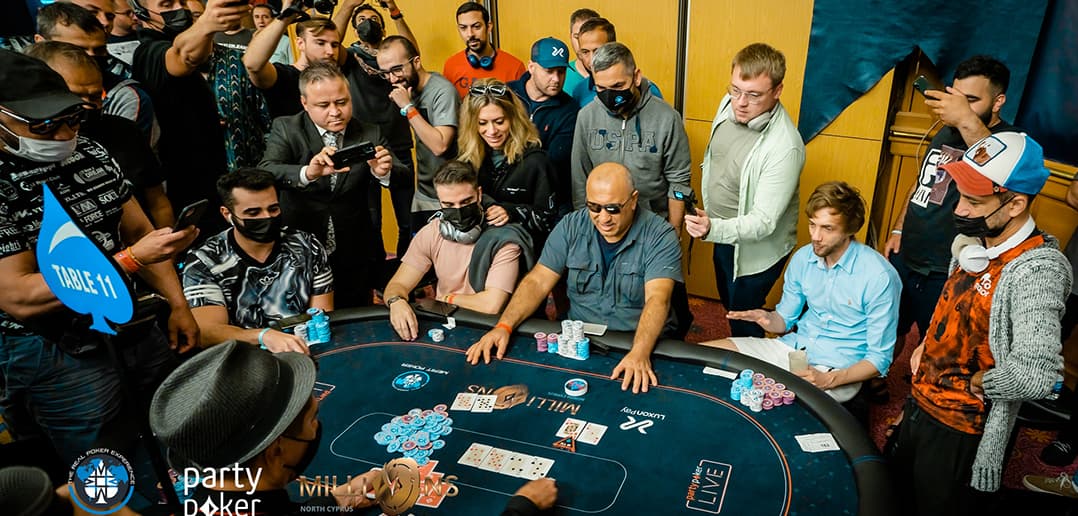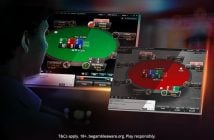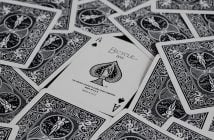Many poker players only have experience playing this crazy game online at PartyPoker and have never stepped foot in a live poker room. Here at PartyPoker, we love online poker, but we also adore live poker action, too. Our PartyPoker LIVE events are incredible. There is something special about being in a cardroom, hearing the chirping of chips being riffled, and being able to stare into your opponent’s soul before making your decisions.
Online poker and live poker are essentially the same beast. However, if you are considering transitioning from online to live poker, there are a few nuances that you must be aware of so you avoid getting caught out or making a glaring mistake.
Live Poker Is Much Slower Than Online
Online poker cash games and tournaments play at least twice as fast as their live counterparts. While it is expected to see 70-100 hands dealt per hour at a table online, you will be hard-pressed to see 25-30 hands per hour in a brick-and-mortar venue.
The change in pace is primarily down to the dealer physically shuffling and pitching the cards, but live poker players also tend to take more time to make their decisions. The much slower pace makes it tempting to pass the time by browsing the internet on your phone or watching something on the television screens around the room. Do not do this. Instead, use the slower pace to your advantage by focusing on what the other players at your table are doing, even when you are not in a hand.
Be Aware of Stack Sizes
The PartyPoker software displays the stack sizes of all the players at your table, but this obviously does not happen in the live poker realm. Make a mental note of your stack size and that of your opponents before you play a hand so you are prepared for later streets. You want to avoid finding yourself in a situation where you or your opponent are pot-committed because you failed to calculate the stack sizes.
You have the right to ask your opponent how many chips they have in their stack if their chips are all over the place. They do not have to tell you verbally but must show you. In addition, try keeping your chips in stacks of 10 or 20 (20 is the industry standard) to make them easier to count, ensuring your large denomination chips are clearly visible.
Continually Calculate the Pot Size
Similar to stack sizes, there is no display showing you how many chips are in the pot at any given time. It is on your shoulders to calculate the pot size at all times. If you lose track of how many chips are in the pot, which is easy to do if several players are in the hand and you are on the turn or river, you can ask the dealer for help. The dealer is not permitted to tell you the figure, but they can and will “spread the pot” to make it easier to count its size.
The One Chip Rule and Verbalizing Your Actions
Most live poker rooms adopt a “one chip rule” regarding calling a bet. Should a player raise to 300, putting a single chip into the pot will be deemed a call. It does not matter if that solitary chip was a 1,000 or 5,000 denomination; the dealer will treat it as a call.
In this example, if you intended to raise, vocally state your intention. Say “raise” and the amount you are raising to. Be aware that verbal declarations are binding, forcing you to fulfil your stated action. If you say “all-in,” you must commit all of your chips. Be careful what you say and be clear when you say it.
Live Tells Are Real
Some live poker players give off tells that you can use to your advantage. Conversely, you may give off tells that your opponents can pick up and use against you. Most players overestimate their ability to read live tells, but you should still be aware of them.
Most will not be glaringly obvious, like Teddy KGB eating his Oreo cookie in the poker movie Rounders. They will be more subtle, like slightly shaking hands or betting faster when they are bluffing or are strong.
The best way to avoid giving off tells is to act consistently. Put your chips into the pot the same way each time you bet, try to be consistent with your movements, and avoid getting engaged in a verbal battle when you are involved in a hand.





